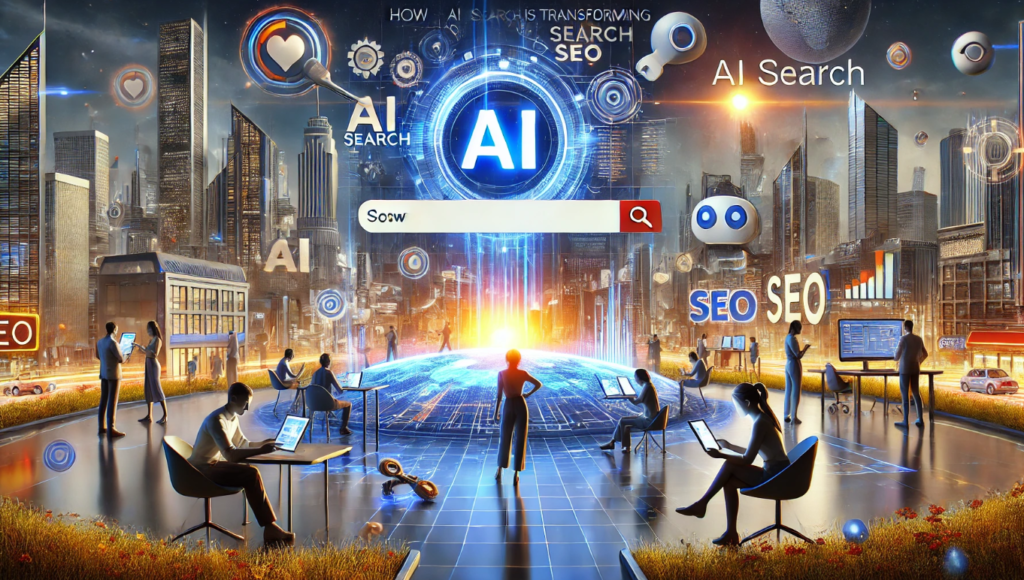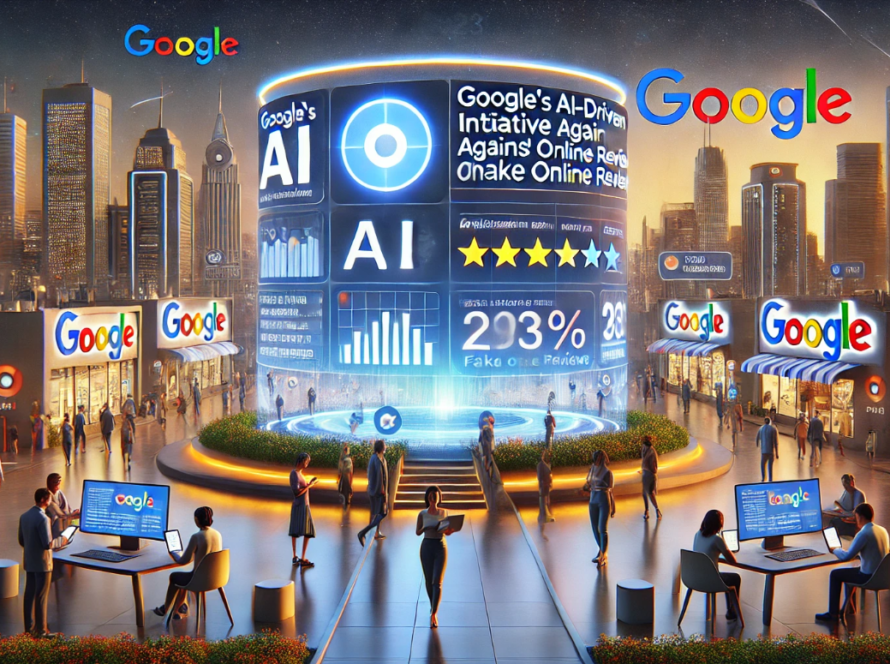In this article, we delve into the evolving world of AI-powered search engines and their profound impact on Search Engine Optimization (SEO). As AI continues to advance, search marketers are faced with a choice: resist these changes or embrace them as opportunities for growth and adaptation. Let’s explore the current state of AI search, its potential implications, and how businesses can prepare for this transformative shift in the digital landscape.
The Current Landscape of AI Search Engines
Both Google and Bing have been at the forefront of integrating AI into their search algorithms. Their approaches blend traditional search methods with elements of chatbot functionality. However, it’s essential to recognize that the future of AI-driven search results may look vastly different from what we see today. What is currently experimental may well become the norm in the coming years.

Emerging Players: A Glimpse into the Future
While Google and Bing have set the stage, several AI search engines are pushing boundaries and exploring innovative search experiences. These emerging players introduce novel ways to search that go beyond the conventional models. One such noteworthy contender is Perplexity AI.
To illustrate the capabilities of AI search engines, let’s consider a real-life example. At the time of writing, the search query “Crocs cowboy boot” had gone viral and was trending on Google’s Daily Trends dashboard. We decided to put Perplexity AI to the test to see how it handles such a trending search query.
Table 1: Perplexity AI SERP Example
Search Query | Result |
Crocs cowboy boot |
As shown in the table above, a well-crafted title becomes crucial in the context of chatbot-style AI search engines. If Perplexity AI represents the future of SERPs, it’s evident that the title plays a pivotal role in attracting clicks. Additionally, the prominence of the website favicon becomes more pronounced.
In this evolving landscape, understanding how AI search engines operate and optimizing your website for improved performance and click-through rates becomes paramount.
Debunking Misconceptions: AI's Impact on Website Traffic
One common misconception is that AI-powered search engines, such as Google’s Search Generative Experience (SGE), will diminish website traffic. However, a closer examination reveals a different reality.
The notion of search engine results pages (SERPs) solely consisting of ten blue links is outdated. Google has been evolving its search results for years. Features like Google Local Search, Featured Snippets, and Local Packs have transformed the way information is presented to users.
Current AI Tools and Agency Sentiments
While agencies are already leveraging AI tools and experiencing savings, concerns about keeping pace with future AI developments linger. The survey reveals high expectations that AI will significantly optimize content workflows and scaling. However, there are conflicting opinions regarding AI’s impact on high-level decision-making. Many agency leaders express reservations about delegating managerial-level control to AI.
Table 5: Agency Sentiments on AI Impact
AI Impact on Decision-Making | Agency Leaders’ Expectations |
Optimization of Workflows | High Expectations |
High-Level Decision-Making | Mixed Expectations |
The Significance of the Top Three Positions
When analyzing user behavior, it becomes evident that the top three search results consistently receive the most clicks. This trend holds true even when considering the presence of ads and supplementary search features like “People Also Ask” sections, videos, and featured news links.
Table 2: User Behavior in Search Results
SERP Position | Click Percentage |
Top Three Results | Highest |
Positions 4-10 | Lower |
Beyond Position 10 | Negligible |
The top three positions in search results have remained the focal point for users seeking information. Thus, the idea that AI-driven search will disrupt organic SERP traffic is unsubstantiated.
Embracing Change: SEO for Google Search Generative Experience (SGE)
Google’s SGE marks a significant shift towards natural language search. The advent of technologies like BERT has revolutionized webpage understanding and ranking. While the fundamental principles of creating valuable, relevant, and user-friendly content remain, adapting to the evolving search landscape is essential.
The Visual Element: Featured Images and SGE
With the rise of SGE, optimizing your content for featured images gains importance. These images serve as visual cues that communicate the essence of your content. In a world where SGE may become the default search method, selecting captivating featured images becomes a strategic SEO consideration.
Table 3: Key Considerations for SGE Optimization
Aspect | Importance |
Quality Content | Fundamental |
Captivating Featured Images | Enhanced Visibility |
As Google Search Generative Experience gains prominence, understanding how it lists websites and optimizing content for attention-grabbing visuals becomes crucial. This approach aligns with the broader strategy of attracting users through engaging content.
The Future of AI Search in SEO
The landscape of AI search engines is continually evolving. While current implementations blend generative search and traditional ranking algorithms, the future may hold more advanced AI-driven solutions. As startups explore innovative approaches, SEO professionals must remain adaptable and open to change.
In conclusion, the impact of AI search on SEO is profound but not necessarily detrimental. It presents opportunities for those willing to adapt and optimize their strategies. Understanding the evolving landscape, focusing on the top three search positions, and mastering the art of visual optimization are key steps in staying ahead in the world of AI-driven search.
Remember, the digital landscape is ever-changing, and embracing these transformations can lead to success in the evolving realm of AI search.
Table 4: Key Takeaways
Key Takeaways |
Embrace AI search as an opportunity for growth and adaptation |
Stay informed about emerging AI search engines like Perplexity AI |
Recognize the evolving nature of SERPs and user behavior |
Adapt your SEO strategy for Google SGE and prioritize visuals |
Be open to future advancements in AI-driven search |



